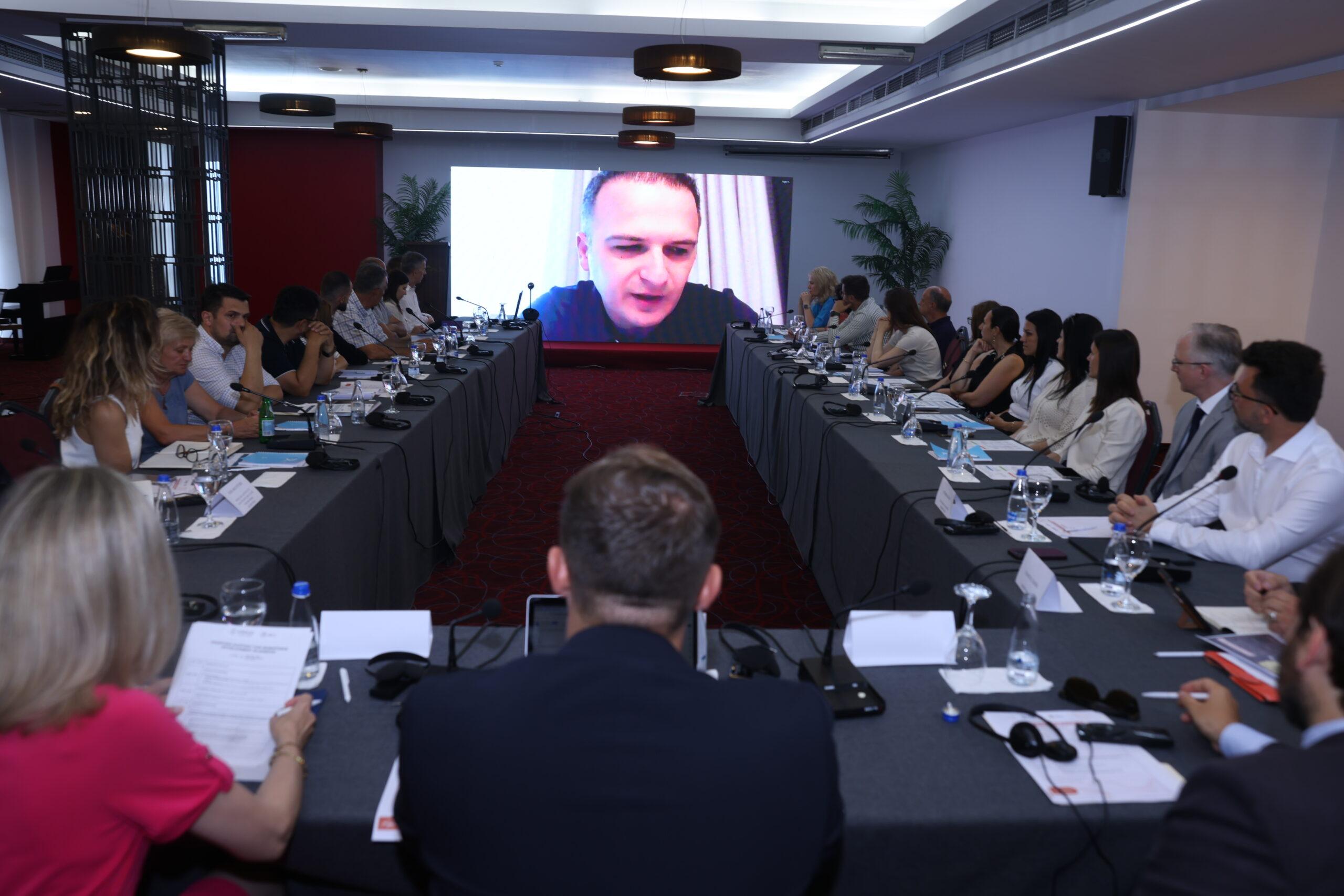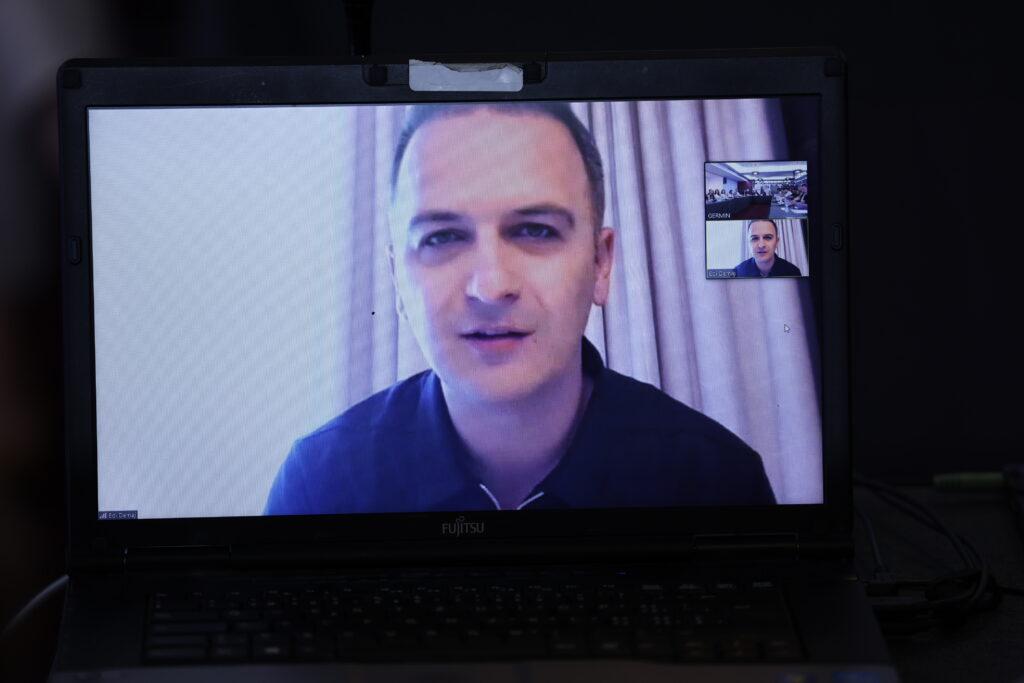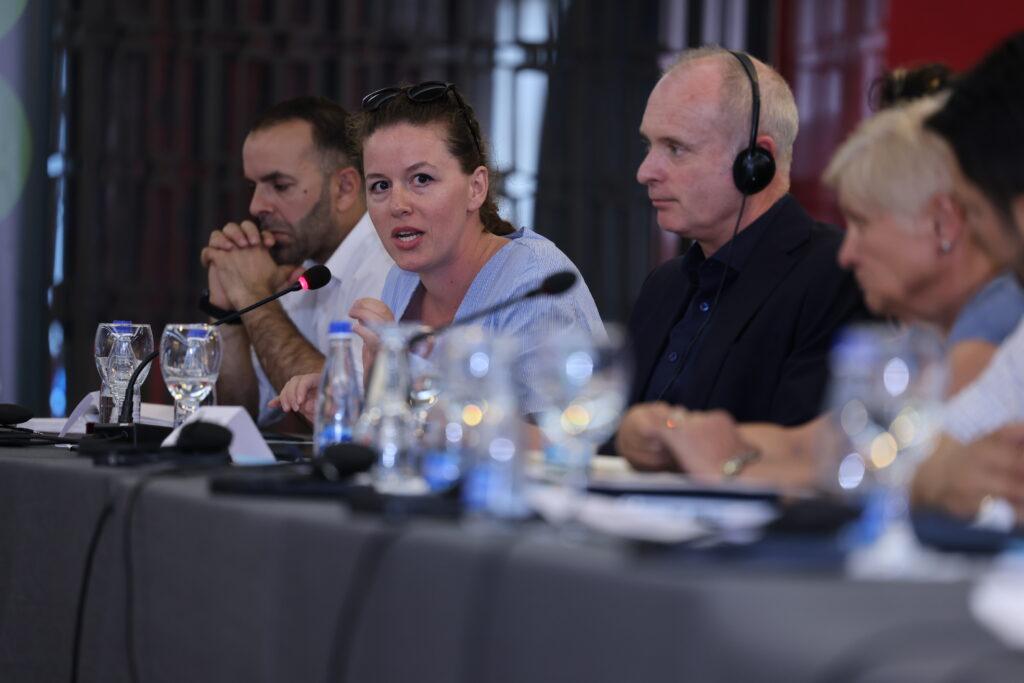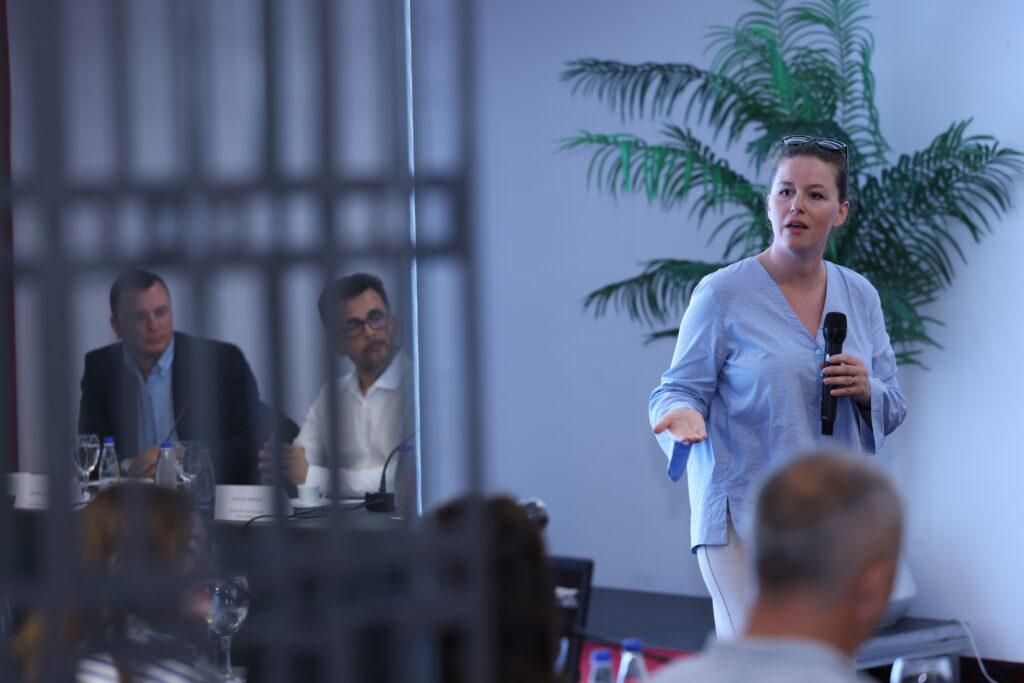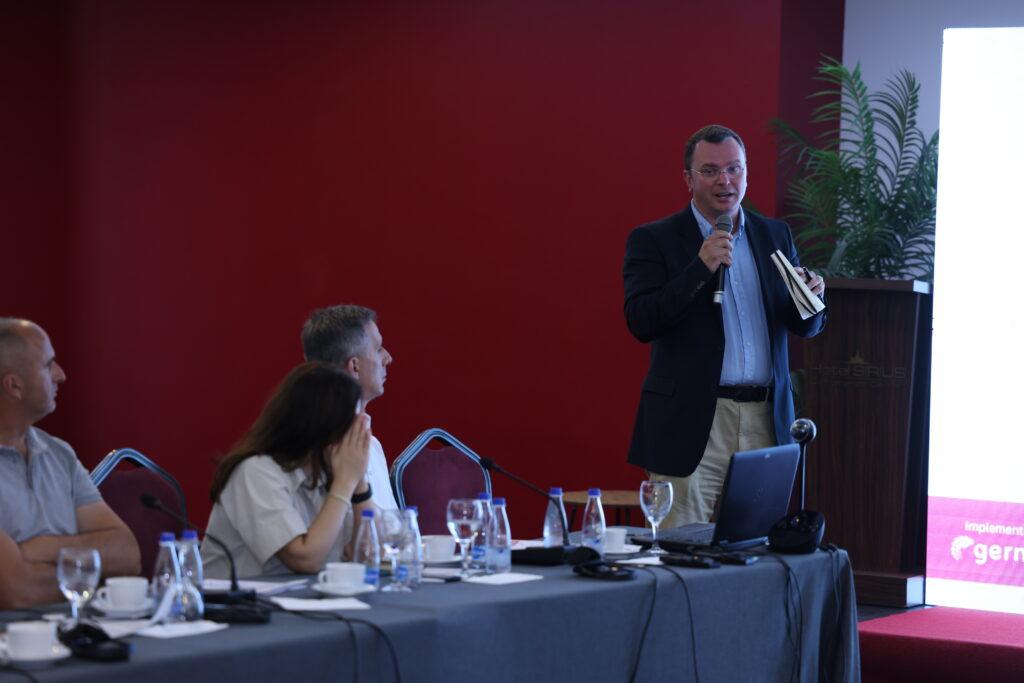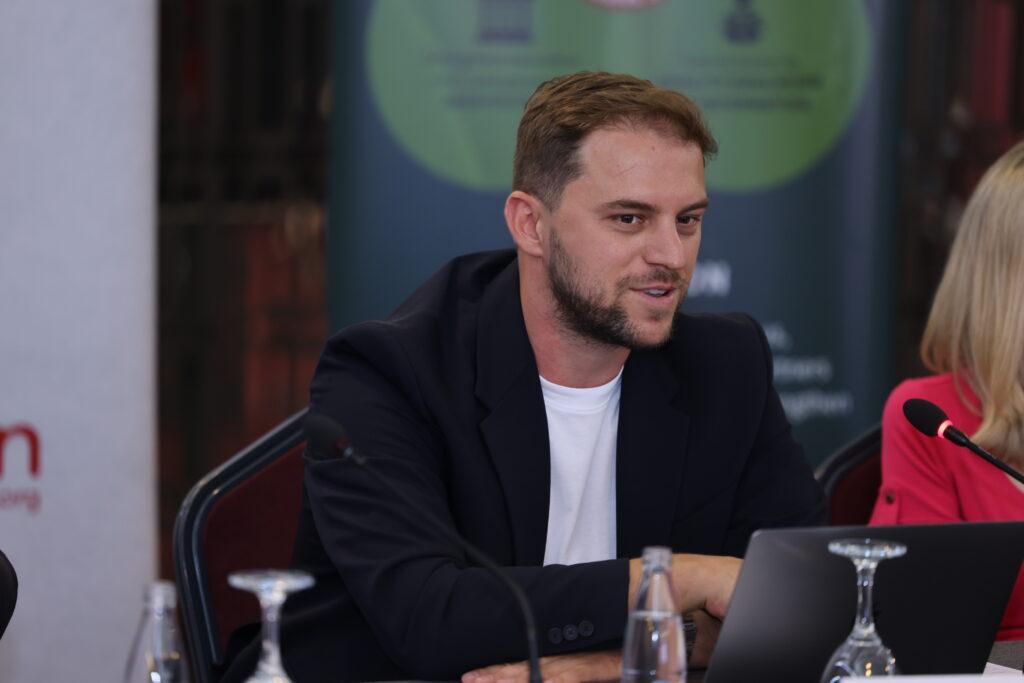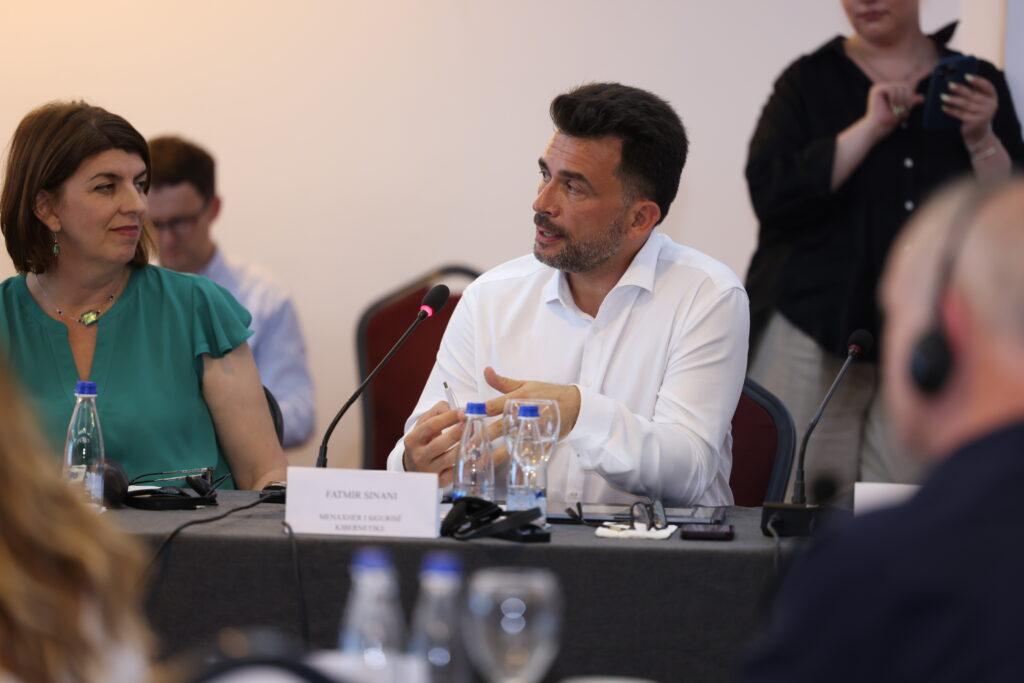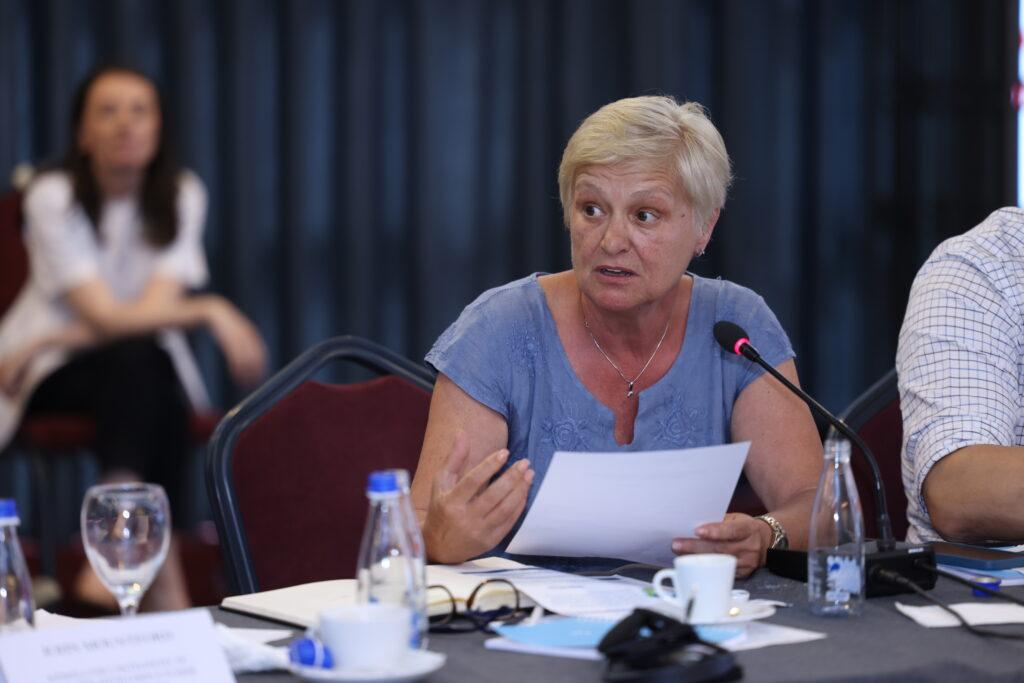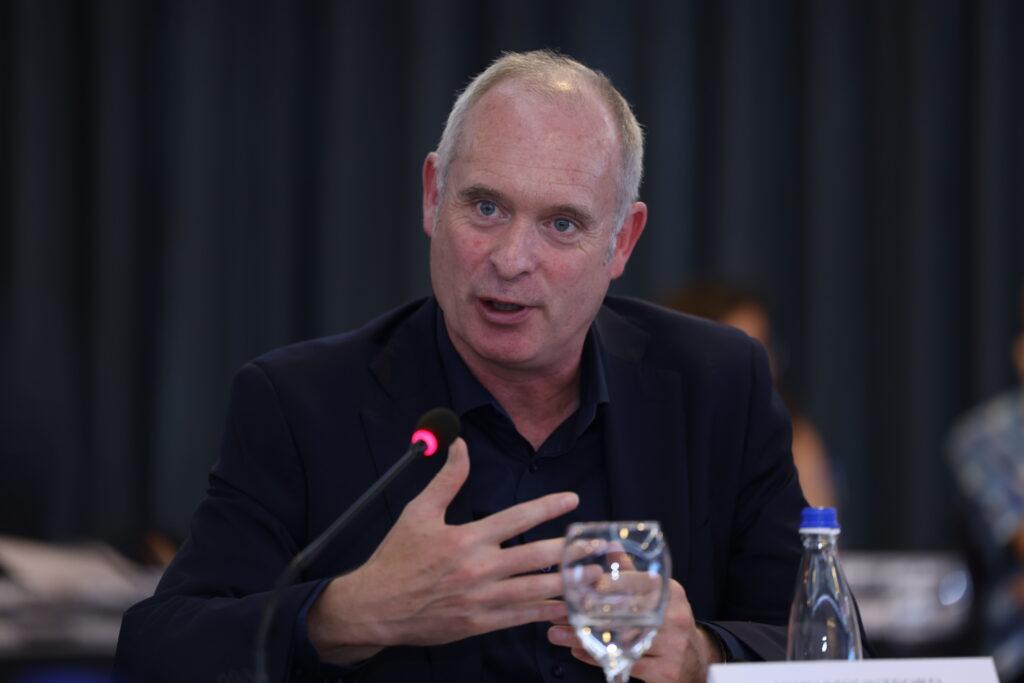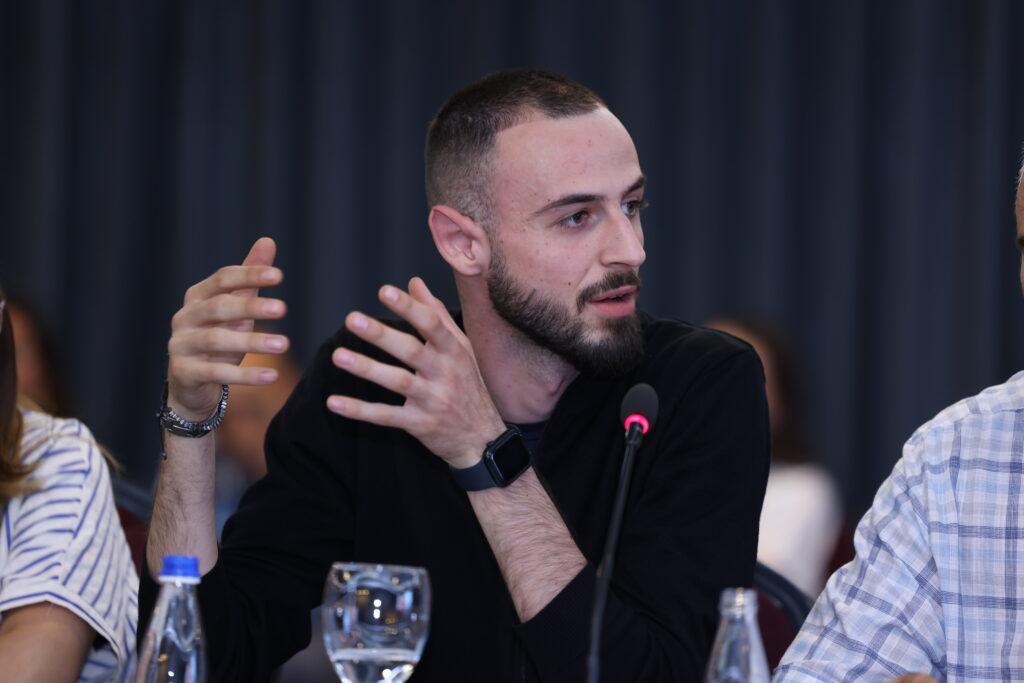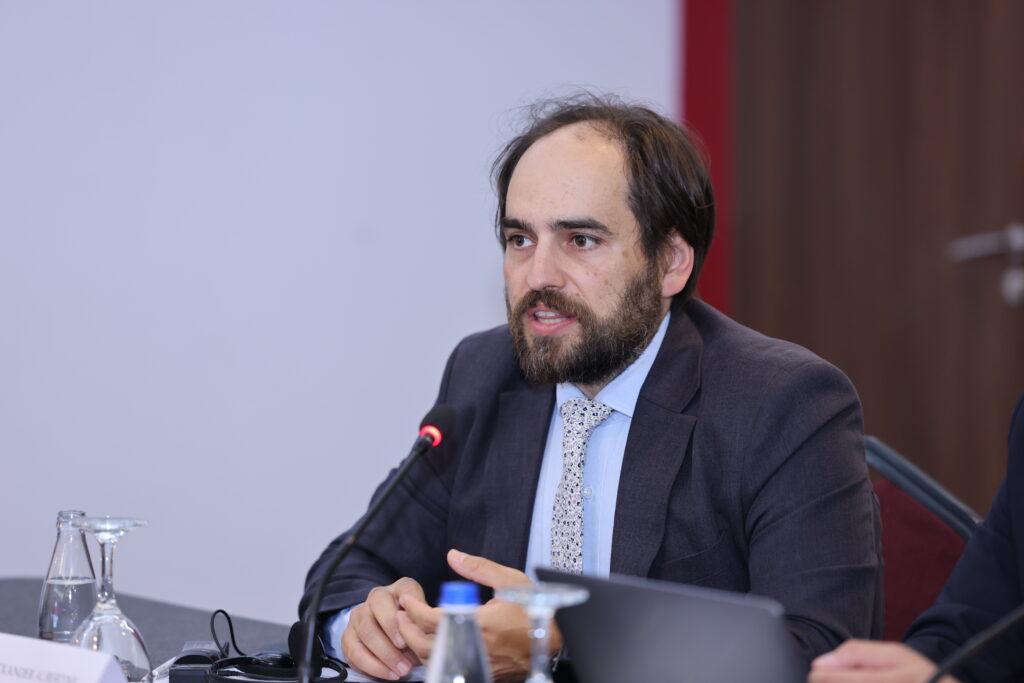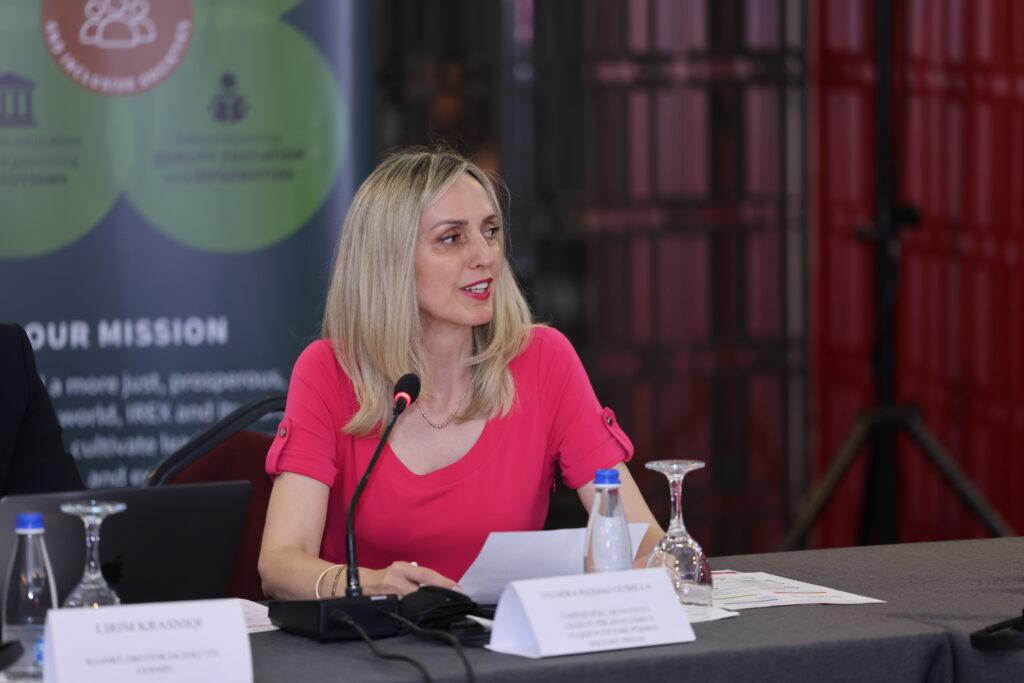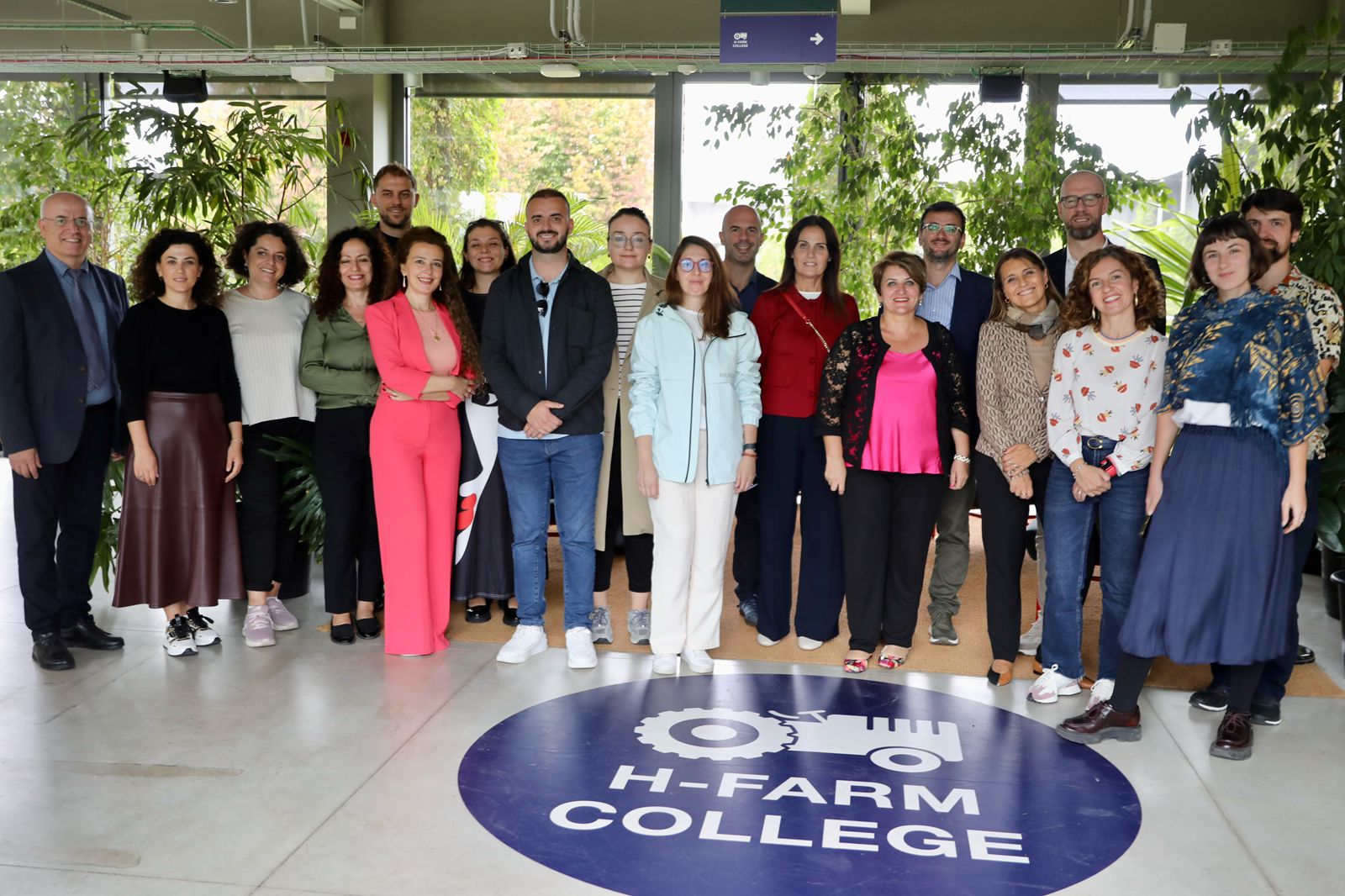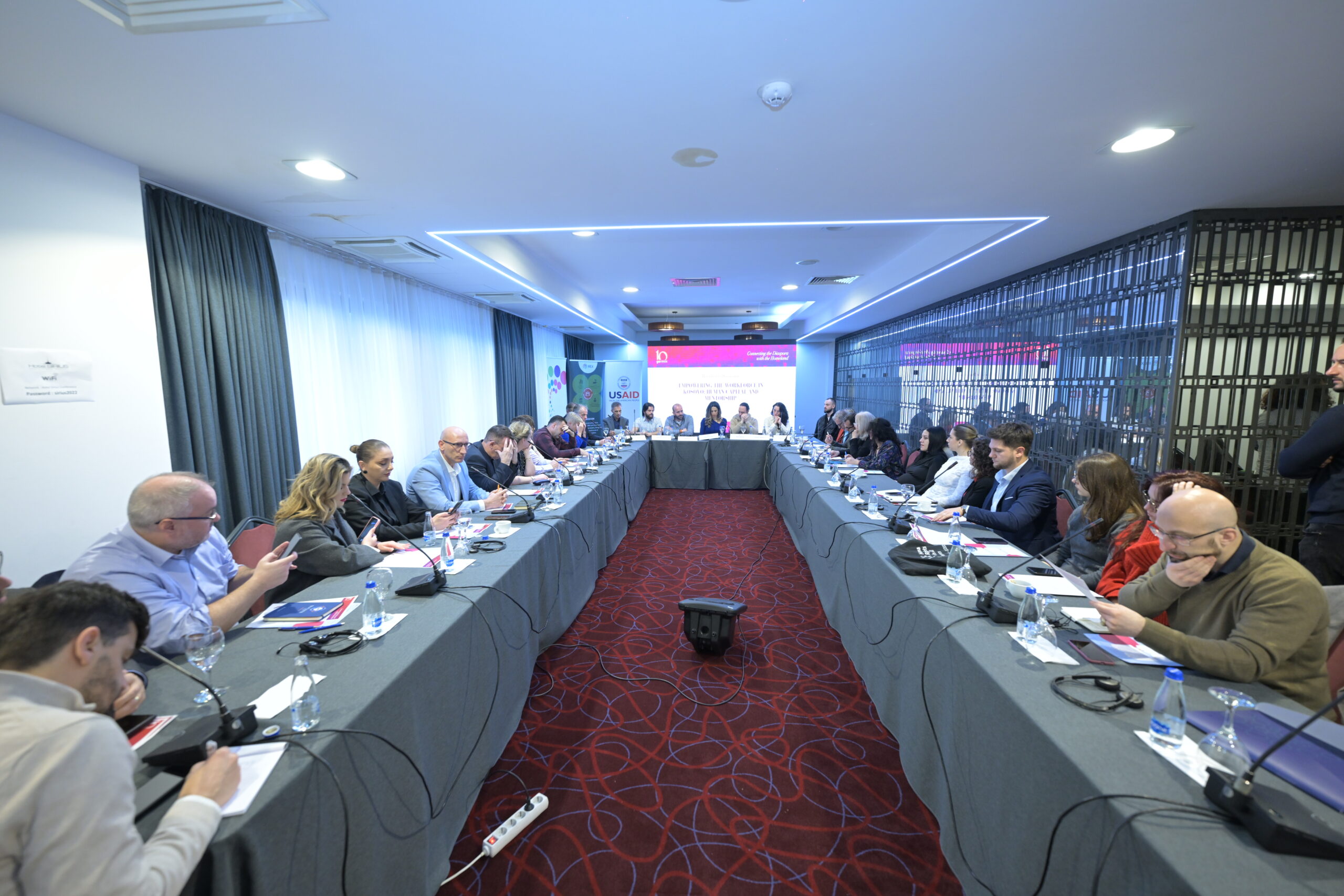On June 20, a dynamic roundtable under the USAID Private Sector-Led Workforce Development Activity brought together renowned diaspora professionals and local stakeholders to discuss and shape the future of Kosovo’s workforce.
Opening Remarks: A Call to Action
The event began with opening speeches by Lirim Krasniqi, Co-Executive Director of GERMIN; Valmira Haxhaj Gushlla, Chief of Party of USAID’s Workforce Development Activity; and Alex Albertine, Director of USAID Kosovo’s Economic Growth Office. They emphasized the vital role of the diaspora in fostering workforce development in Kosovo, underlining the collaborative efforts required to achieve sustainable growth.
Keynote Address: A Vision for the Future
Edi Demaj, Co-Founder of KODE Labs, delivered an inspiring keynote address via Zoom. He shared his entrepreneurial journey and connection with Kosovo, where his company employs over 200 talented individuals. Demaj’s speech was followed by a lively Q&A session filled with insightful questions and ideas from the audience.
Expert Presentations: Building a Competitive Workforce
The event featured expert presentations on various critical topics:
- Sectorial Council’s Development Plan: Detailed strategies for sectorial growth.
- Fundraising Strategies: Innovative approaches to secure funding for workforce initiatives.
- Sustainable Financial Models: Long-term financial planning for workforce projects.
- Enhancing Workforce Competitiveness: Methods to improve the skill set and competitiveness of the local workforce.
Speakers included John Mountford, USAID Advisor; Serena Leka, Innovation Lecturer at Aarhus University in Denmark; Emanuel B. Bajra, a Financial Expert from the UK; and Fatmir Sinani, Cybersecurity Manager from Germany.
Engaging Discussions: Shaping Future Strategies
The roundtable concluded with an engaging discussion and a vibrant Q&A session. Participants actively shared their insights and recommendations, contributing to a collective vision for Kosovo’s workforce development. Based on these discussions, a comprehensive report with actionable recommendations will be compiled and shared soon.
Conclusion: A Collaborative Effort for Sustainable Growth
This event was a part of the USAID Private Sector-Led Workforce Development Activity, implemented by IREX and GERMIN, and funded by USAID. It showcased the potential of diaspora support in driving workforce development and highlighted the importance of collaborative efforts between local and diaspora professionals.
Join the Conversation
Follow the conversation on social media using the hashtags: #KosovoWorkforce #DiasporaSupport #WorkforceDevelopment #USAID #GERMIN #IREX
Stay tuned for the upcoming report and be a part of the transformative journey of Kosovo’s workforce development.
